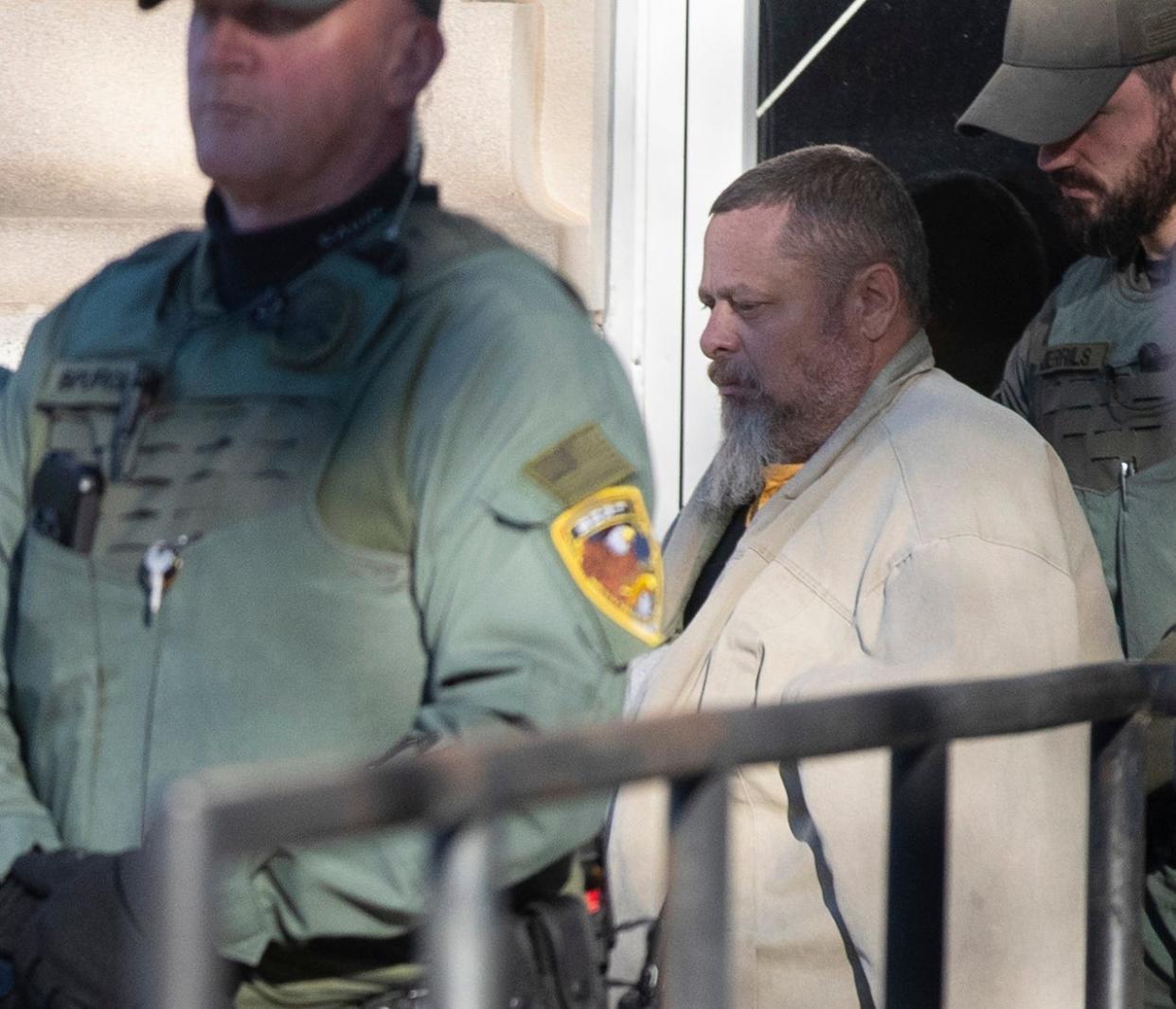Prosecutor wants accused Delphi killer's docket sealed from the public

DELPHI, Ind. — Carroll County Prosecutor Nicholas McLeland doesn't want the public to see the pretrial legal wrangling in the case of Libby German and Abby Williams' accused killer, Richard Allen, and filed a motion Monday to prohibit public access to the court records.
Ironically, McLeland's motion to seal the court documents from the public is itself sealed. A second motion asking that future filings be sealed from the public until reviewed by Special Judge Frances Gull also is sealed.
In a separate motion McLeland filed Monday, the prosecution is not in support of Allen's request to allow broadcasting of hearings and the trial.
Allen was arrested Oct. 26, 2022, and charged Oct. 28, 2022, with murder for the Feb. 13, 2017, killings of Libby and Abby on the north banks of the Deer Creek about a quarter-of-a-mile east of the Monon High Bridge. The investigation took more than five years of investigation before Allen was arrested.
In McLeland's motion on the request to broadcast, he writes, "... (T)he defense team has continued this extrajudicial grandstanding throughout their motions, including the Emergency Motion to Modify Safekeeping Order filed April 5th, 2023, and most recently with their Verified Motion for Immediate Transfer of Custody and the Motion for Frank's Hearing with attached memorandum in support, all filed on September 18th, 2023."
The motion comes one week after Allen's attorneys filed a 136-page memorandum that cites police documents to suggest that the two Delphi teenagers were killed Feb. 13, 2017, as part of a Odinist ritual sacrifice. Allen's defense team also uses the state's documents to detail a theory that Libby and Abby were killed by at least three suspects in this Odin ritual and points to evidence ignored or dismissed by investigators. This evidence was omitted when police asked for a search warrant for Allen's house.
"... (T)he Defense has filed its 136-page Memorandum in Support of the Franks hearing in which only 13 pages refers to any allegations relevant to the question of a Franks inquiry," McLeland's response to broadcasting states. "The remaining 90% of the Memorandum outlines its fanciful defense for social media to devour."
A Franks hearing is one in which a party — in this case, Allen — asks the court to determine if law enforcement lied to obtain a search warrant. Allen's attorneys allege in its memorandum that law enforcement lied or omitted information when they got a warrant to search Allen's Delphi home. According to Allen's attorneys, if the investigators had been candid, the court would not have issued the warrant.
The News Media Coalition of Indiana news outlets also filed a motion Monday in support of the recording and broadcasting of the hearings and trial.
The motion to seal filings comes one week after Allen's memorandum filed at 2:06 a.m. Sept. 18 initially was public but was sealed at least before 9 a.m. Sept. 18. But news outlets downloaded the document before it was sealed.
McLeland also filed a response to Allen's motion to suppress evidence from the search warrant, addressing some of the issues in the memorandum and motion.
"... (W)hile the memorandum is colorful, dramatic and highly unprofessional, it is not completely true," McLeland writes. "(T)he State believes the allegations outlined by the Defense are not supported by evidence that they have collected.
"... Sheriff Tony Liggett did not intentionally or recklessly omit evidence or lie about evidence in the probable cause affidavit to support the search warrant," McLeland states in the response.
The probable cause affidavit to search Allen's house was based on Allen's admission that he was on the trails, wearing a blue or black Carhartt jacket with a hood and was wearing a head covering, McLeland's response states.
Allen admitted to owning guns and knives.
"(B)ased on this information, investigators prepared a probable cause affidavit with a search warrant for the home of Richard Allen," the state's response said. "That probable cause affidavit covers all the information that law enforcement had gathered in the investigation in regards to Richard Allen up until October 13th, 2022."
McLeland states that evidence to get a search warrant only needs to lead "a person of reasonable caution to believe that a crime has been committed."
"(T)he State believes that the affidavit does meet the threshold to establish probable cause under the 4th Amendment of the United States Constitution in that there was substantial basis for finding probable cause and there was a high likelihood based on the evidence that investigators had that there was evidence of the crime in the home of Richard Allen."
Gull has not ruled on the motion to suppress evidence or set a date for a Franks hearing.
She also has not ruled on the motion to seal court documents from public inspection, the motion to have filings reviewed by the court before making them public or the motion to allow broadcasting and recording of Allen's hearings and trial.
Reach Ron Wilkins at rwilkins@jconline.com. Follow on Twitter: @RonWilkins2.
This article originally appeared on Lafayette Journal & Courier: Prosecutor wants accused Delphi killer's docket sealed from the public

